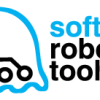The Soft Robotics Toolkit is a collection of shared resources to support the design, fabrication, modeling, characterization, and control of soft robotic devices. The toolkit was developed as part of educational research being undertaken in the Harvard Biodesign Lab. The ultimate aim of the toolkit is to advance the field of soft robotics by allowing designers and researchers to build upon each other’s work. The toolkit includes an open source fluidic control board, detailed design documentation describing a wide range of soft robotic components (including actuators and sensors), and related files that can be downloaded and used in the design, manufacture, and operation of soft robots. In combination with low material costs and increasingly accessible rapid prototyping technologies such as 3D printers, laser cutters, and CNC mills, the toolkit enables soft robotic components to be produced easily and affordably. Each section of the site focuses on a soft robotic device or component, and includes the following sections: Design: A description of the device and how it works, with related design files that can be downloaded and guidelines on potential modifications you could make to the design.
Fabrication: A bill of materials listing all of the parts, materials, and equipment you will need to build your own device, plus a detailed set of instructions for you to follow.
Modeling: A discussion of modeling and analysis approaches you can use to predict and understand the behavior of the device and optimize your design.
Testing: In order to validate your models and better understand your device, you will need to carry out empirical tests. This section describes the tests that other designers and researchers have carried out and that may provide inspiration for the design of your own experiments.
Case Studies: Examples of how others have used the device or component for real-world applications.
Downloads: All of the files related to the design, fabrication, modeling, testing, and control of the device. (via Soft Robotics Toolkit)
